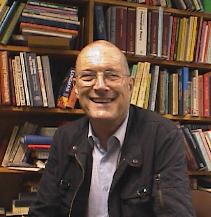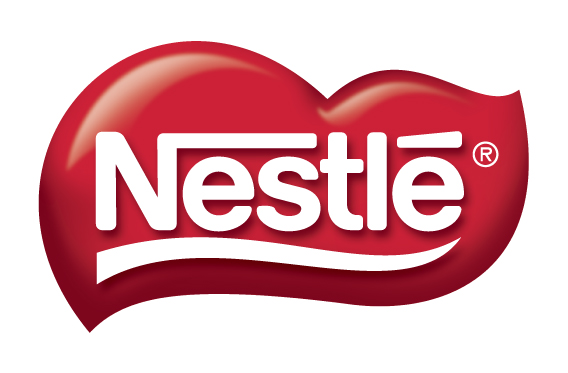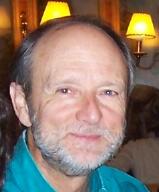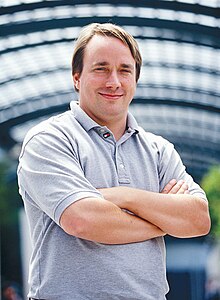DEPARTMENT OF SPEECH, HEARING & PHONETIC SCIENCES UCL Division of Psychology & Language Sciences |
 |
John Wells’s phonetic blog
|
|
| Friday 29 June 2007 | A caricature of U-RPEvery now and again the Guardian’s cartoonist Steve Bell gives us an illustration of the popular stereotype of upper-class RP (U-RP). Here’s yesterday’s offering. | |||||||||||||||||||||||||
| ||||||||||||||||||||||||||
The Queen, like Prince Charles, is regularly represented as saying /aɪ/ instead of /aʊ/. So Gordon Brown appears instead as Mr Brine, and is commanded to sit dine. You can work out for yourself what Nigh represents. U-RP speakers do not, of course, have pairs such as down and dine, how and high as homophones. It’s just that the unrounded and somewhat fronted offglide of their /aʊ/ (something like [aɨ]) may make it seem that way. The spelling heving, equally, does not imply homophony of bad – bed etc. It’s just that the Queen’s speech (unlike, say, Princess Anne’s) is perceived as having a somewhat raised variety of /æ/. Lastly, rhotic speakers may need to be reminded that the spelling orff for off does not imply any /r/, but merely signals the use of the antiquated /ɔː/ before a voiceless fricative instead of the current mainstream /ɒ/. Showing not only off but also on as pronounced this way is surely a false exaggeration. | ||||||||||||||||||||||||||
| Thursday 28 June 2007 | Monitoring AmEMore long days in the studio, monitoring dictionary pronunciations (see blog, 1 June). But now we’re doing American English. It’s brought me up sharply against the problem of deciding what we mean by the vague expression General American. It is usually defined negatively, as a United States accent that does not include noticeable eastern or southern characteristics. American dictionaries, with the exceptions of the ancient Kenyon and Knott and the specialist Dictionary of American Regional English, give their pronunciations only in this GA. Naturally, I followed suit in LPD, basing myself largely on Webster’s Collegiate, the Random House Dictionary, and the American Heritage Dictionary. Nowadays I also use the on-line Merriam-Webster. When EPD started to include American pronunciations it did the same. As for OPD, whose American editor Bill Kretzschmar has a distinguished background as a dialectologist — after six columns of agonizing it too ends up with much the same sort of thing, now under the new name ‘the American English pronunciation model’. This is fine for the lexicographer. I have a very clear idea of what I expect for GA and what I do not expect. But now I have actual actors in the recording studio, reading the lists of headwords. There are two problems: (i) they’ve been living in England for a time, and (ii) they do not conform in every detail to my idea of GA. The first problem means that I have to intervene now and again to urge them to sound more American, less British. One actor has the (presumably British) habit of pronouncing the suffix -ization as /-aɪˈzeɪʃn̩/ instead of the /-əˈzeɪʃn̩/ (or /-ɪˈzeɪʃn̩/) that I expect from an American. I insist on her using the American form. With another actor I have to intervene to remind him to voice his t's in words like negative and to pronounce words like Everton and Clinton with [-ʔn̩] rather than [-tən]. (Drama school training in diction may play a role here, too.) The second problem means that whereas my GA model caters for a distinction between marry and merry it is pointless for me to insist on it with an actor who is one of the many millions of GA speakers who don’t make any such distinction in vowels before /r/. Likewise with the potential vowel contrast exemplified in dawn versus Don. |
| ||||||||||||||||||||||||
| Wednesday 27 June 2007 | Vorsprung... wie war das?Apropos of brand names, Nigel Greenwood comments Braun? Nestlé? I think the latter is now correctly pronounced, but it used to be "nestle" in the UK. Seeing the VW logo, I was rather hoping for a reference to Audi's Vorsprung durch Technik (which has its own WP entry, complete with IPA). Yes, the German electrical brand Braun is indeed usually / For Nestlé, on the other hand, we have generally abandoned /ˈnesl̩/ in favour of /ˈnesleɪ/.
As for Audi — which in English, as in German, is /ˈaʊdi/... of course the slogan Vorsprung durch Technik does present problems to English-speakers. As Nigel mentions, its Wikipedia entry gives a correct IPA representation of the German pronunciation, [ˈfoːɐʃpʁʊŋ dʊʁç ˈtɛçnɪk]. But non-German speakers are not familiar with the idea that the letter V can stand for [f], and they do not understand the German distribution of [ç] and [x], both spelt ch. Anyhow, the cluster [ʁç] — a uvular fricative (or approximant) plus a palatal fricative — is tricky by any standards. (Actually, Germans often make it [dʊɐç], so we could attempt at least /dʊəx/.)
But we usually say something along the lines of /ˈvɔːsprʊŋ dɜːx ˈtexnɪk/.
Browsing through LPD, as one does, I noticed a puzzling entry.
This must be a name, because it begins with a capital letter. And there must also be a common-vocabulary word with the same spelling, because at the end of the headword we see d~.
And why is there this strange mismatch between the spelling, with a, and the pronunciation with /e/?
This entry wasn’t in the first edition of LPD: I’ve checked. So I must have added it when preparing the second edition (2000). Yet I have entirely forgotten what it is.
It’s not in the Concise Oxford, not in the big OED, not in Webster’s Collegiate. Nor is it in the extensive list of proper names in the Dictionnaire de la Prononciation Française (Warnant).
I’ve tracked it down to the Macquarie Dictionary, which is Australian. I must have added it as part of the drive to increase the number of non-British, non-American words in LPD.
It turns out that the Dumaresq is an important Australian river, forming part of the boundary between Queensland and New South Wales. Wikipedia says it was named in 1827 after Lt-Colonel Henry Dumaresq, Governor Darling’s assistant and his wife’s brother.
There’s a Dumaresq Street in Sydney.
A dumaresq (lower-case) is “a device which gauges the rate at which an enemy ship, missile, etc., is moving”. It was named after its inventor, Rear-Admiral John Saumarlz Dumaresq, 1873-1922, Australian naval officer.
Yes, it ought to be pronounced with /æ/, not /e/. That must just be a mistake in LPD. Or did I consult an Australian and misidentify his raised /æ/?
Volkswagen, Weetabix, Whiskas... brand names are a familiar part of every native speaker’s vocabulary, and often thoroughly global. Yet ordinary dictionaries mostly don’t include them.
Whether we want to tell EFL students how we pronounce them, to reassure native speakers on what to say, or to document the current state of the language for the instruction and delectation of future generations, brand names (trade names, commercial names, trademarks) do in my view deserve a place in a pronunciation dictionary.
When Jones was editor, there were I think no brand names in his EPD. So the likes of Mazawattee, Dolly Blue and Craven A, now only of historical interest, remained undocumented. Even Coca-Cola was not mentioned.
The current editors of EPD have now changed its policy about trade marks and include them.
Brand names are not without their problems. Many years ago I noticed that various pronunciations of Hyundai were in use in British television advertisements, though they now seem to have settled on /ˈhaɪʌndaɪ/ — very different from the Korean source [hjəːndɛ]. The American version, /ˈhʌndeɪ/, is closer. From the English pronunciation of Kyocera, /ˌkaɪəˈsɪərə/, you’d never guess that it is an abbreviation of Kyoto Ceramic (Kyōto Seramikku).
The modern lexicographer has resources unknown to earlier generations. If I want information on a trade mark, I can go on line and consult Wikipedia or Google. (How do you think I amassed all these nice graphics?) Sometimes the brand owner’s website even carries an indication of how the name is to be pronounced.
Recently I was trying to discover how to pronounce Freixenet. On the company’s British website I found clips of their television advertisements, in which the voice-over clearly says /ˈfreʃənet/. In the original Catalan, on the other hand, this word has final stress: [fɾəʃəˈnɛt]. The company’s American website is useless in this respect, offering no video or sound clips, just the ambiguous specification ‘pronounced "fresh-eh-net"’.
Double dactyls (blog, 11 June). What talented correspondents I have! Here is Nigel Greenwood’s version of a Vladimir Nabokov double dactyl.
Bravo!
Hangar (yesterday’s blog). Nigel also tells me that hangar is from a Frankish/Germanic word cognate with "homeyard" or "ham(let)-yard": not so much a cattleshed as a large barn for general storage. Flaubert, Proust, St-Exupéry — they've all used the word! According to Burchfield’s edition of Fowler’s Modern English Usage, he says, when first used in English it was pronounced as in French, i.e. as [(h)ɑ̃ɡaʁ].
Given away by a single word. A newcomer turned up at the running club last Sunday. I asked him what his name was. He replied, “[ˈkɪvn̩]”, using a rather close [ɪ]. So I said, “Welcome, Kevin — you must be from New Zealand.” And he was.
Job. UCL is looking for a part-time fixed-term Teaching Fellow in Phonetics, to start in September. Closing date: 5 July. Further information here.
An email from Petr Rösel of the University of Mainz:
You will not be surprised to hear that I think LPD is correct. That is, I believe that in RP the hangar in which an aircraft is kept is normally pronounced /ˈhæŋə/, which makes it a homophone of the hanger on which you hang your clothes.
To the best of my knowledge and experience, the people who say /ˈhæŋɡə/ for hangar are mostly the same people who also characteristically have /-ŋɡ-/ in hanger, banger, singer etc. This pronunciation feature is retricted to the northwest of England (the area surrounding Liverpool - Manchester - Birmingham) and therefore arguably fails the RP test of non-localizability. (Nevertheless, I do include this pronunciation of hangar in LPD, but do not make it first choice.)
It is significant that the actor whose job it was to pronounce hangar for the EPD CD-ROM, who probably worked from orthography rather than from phonetic transcription, chose to say it not as /ˈhæŋɡə/, the first choice in the printed EPD, but as /ˈhæŋə/. Evidently he thought as I do.
The general rule is that we pronounce bare ŋ only in morpheme-final position. That is why we have bare ŋ in bang#er, sing#er, long#ing but -ŋɡ- in anger, linger, tangle. As is well known, the comparative and superlative forms longer, longest, stronger, strongest, younger, youngest are irregular in that they retain ɡ despite the morpheme boundary; and, in the other direction, words that have bare ŋ despite seemingly having no morpheme boundary include gingham, dinghy (usually), place names such as Birmingham, Nottingham, Buckingham which had a morpheme boundary a thousand years ago but not today, and ... hangar.
Hangar is quite a recent word in English — barely a hundred years old. It reportedly comes from a French dialect word meaning ‘cowshed’, allegedly because it was in a cowshed that Blériot, the first man to cross the English Channel in a heavier-than-air aircraft, stored his plane. I surmise that the reason for its general pronunciation as /ˈhæŋə/ is contamination from the bimorphemic hang#er.
Here’s the text of an email I received yesterday, suitably anonymized. It is not untypical.
This is what I was severely tempted to reply:
And here’s what I actually replied:
In response came the following abrupt message.
So she can’t acknowledge my reply personally, because she’s doing something important. (She’s also not very strong on Portuguese punctuation.)
Would it have been better to send my first, long, reply?
And in a neat segue from yesterday’s topic...
One of the proper names regrettably missing from LPD is Athenry, the name of a place in County Galway, Ireland.
It is best known nowadays through the song The Fields of Athenry, composed by the Irish folk singer-songwriter Pete St. John.
How Mr St. John pronounces his surname I do not know. But I do know how to pronounce Athenry. There are two music clips available on the web, through which you can listen to the song and hear it pronounced. One has just the first verse, and can be accessed via the composer’s website: the name of the singer is not given. The other, complete, version is sung by Patrick Sarsfield.
Athenry is pronounced /ˌæθənˈraɪ/, which is not the most obvious pronunciation given the spelling.
The song tells of a young man sentenced to transportation to Australia for stealing corn to feed his family during the Irish famine. (See the Wikipedia link above.)
EPD has had an entry for Athenry since Daniel Jones’s time, though Jones pronounced it with [ɪ] in the middle syllable. The use of a strong vowel [e] in the middle syllable is presumably restricted to singing style.
The name is of Irish Gaelic origin, Átha an Rí ‘Ford of the King’. Since the Irish for ‘king’ is pronounced [rʲiː], the name was obviously borrowed into English many centuries ago, before the Great Vowel Shift operated to turn the last syllable into [raɪ].
Michael Covarrubias points out that the ‘new’ pronunciation of St John’s wort (blog, 13 June) involves not only a change of vowel but also a new stress pattern. He also comments on the differing British and American treatments of names including Saint.
True. The wildflower name I learnt at my mother’s knee was /sənt ˈdʒɒnz wɜːt/. (I apply the usual LPD conventions that raised and italicized symbols denote optional sounds: the weak form of saint may or may not have a plosive at the end, and the central part may be either a syllabic [n̩] or [ən]).
I believe this is still generally the botanists’ pronunciation. But what the British aficionados of herbal remedies say is /sənt ˌdʒɒnz ˈwɔːt/.
And the Americans, of course, do not use the weak form of Saint: so for them it’s /ˌseɪnt (ˌ)dʒɑːnz ˈwɔːrt/. The same BrE-AmE difference is to be observed in all other saints’ names and places, churches, hospitals and so on named after saints: St Albans, St Andrews, St Catherine, St Davids, St Helens, St Paul’s Cathedral, St Petersburg, St Vincent etc etc, all with a weak vowel for St in BrE. I find it quite difficult to remember that Mount St. Helens in Washington state, since it is an American name, is meant to be said with /seɪnt/. Americans obviously have the opposite problem with St Helens in Lancashire.
The American insistence on a period (BrE: full stop) after the abbreviation St., and the British reluctance to use it, have nothing to do with the matter.
Nor really has the surname St John, by some of its bearers pronounced /ˈsɪndʒən/,as in the former Norman St John-Stevas, now Lord St John of Fawsley. Nor the surname St Clair, which has generally morphed into Sinclair.
If you didn’t know, you’d expect, on the basis of the spelling, that the English pronunciation of the computer operating system Linux would be /ˈlaɪnəks/. But in my experience most computer people call it /ˈlɪnəks/.
It is named after its inventor, Linus Torvalds. (Apparently he originally intended it to be called Freax. It replaced something called Minix.) We are unusually lucky in that we have first-hand evidence of how Torvalds himself intends Linux to be pronounced.
In 1992, as mentioned by Wikipedia, he explained as follows in the comp.os.linux newsgroup. (Unfortunately, phonetics is perhaps not his strong point.)
Far better, he has made available an audio sample in which you can hear his own pronunciation. Listen to it. What do you think?
The second vowel in Linux sounds to me more like English /ə/ than the /ʊ/ that Wikipedia claims and Torvalds’s own words imply. (Given his quite strong Swedish accent, it’s actually probably a Swedish [ɵ].)
In the clip you also hear Torvalds’s pronunciation of his own name. Just to be sure, I asked Olle Engstrand of the Institute of Linguistics, University of Stockholm, how the name would be pronounced in a standard Swedish accent. He replied as follows.
On the audio clip I think Torvalds uses a tap [ɾ]. But then he’s not a Swede but a Swedish-speaking Finn. There’s a further uncertainty: is the first vowel of Linux meant to be short, as Torvalds describes, or long, as in his own name? In English, at any rate, it’s short.
| |||||||||||||||||||||||||
Archived from previous months:
To search my web pages, use this Google search.
my home page




























